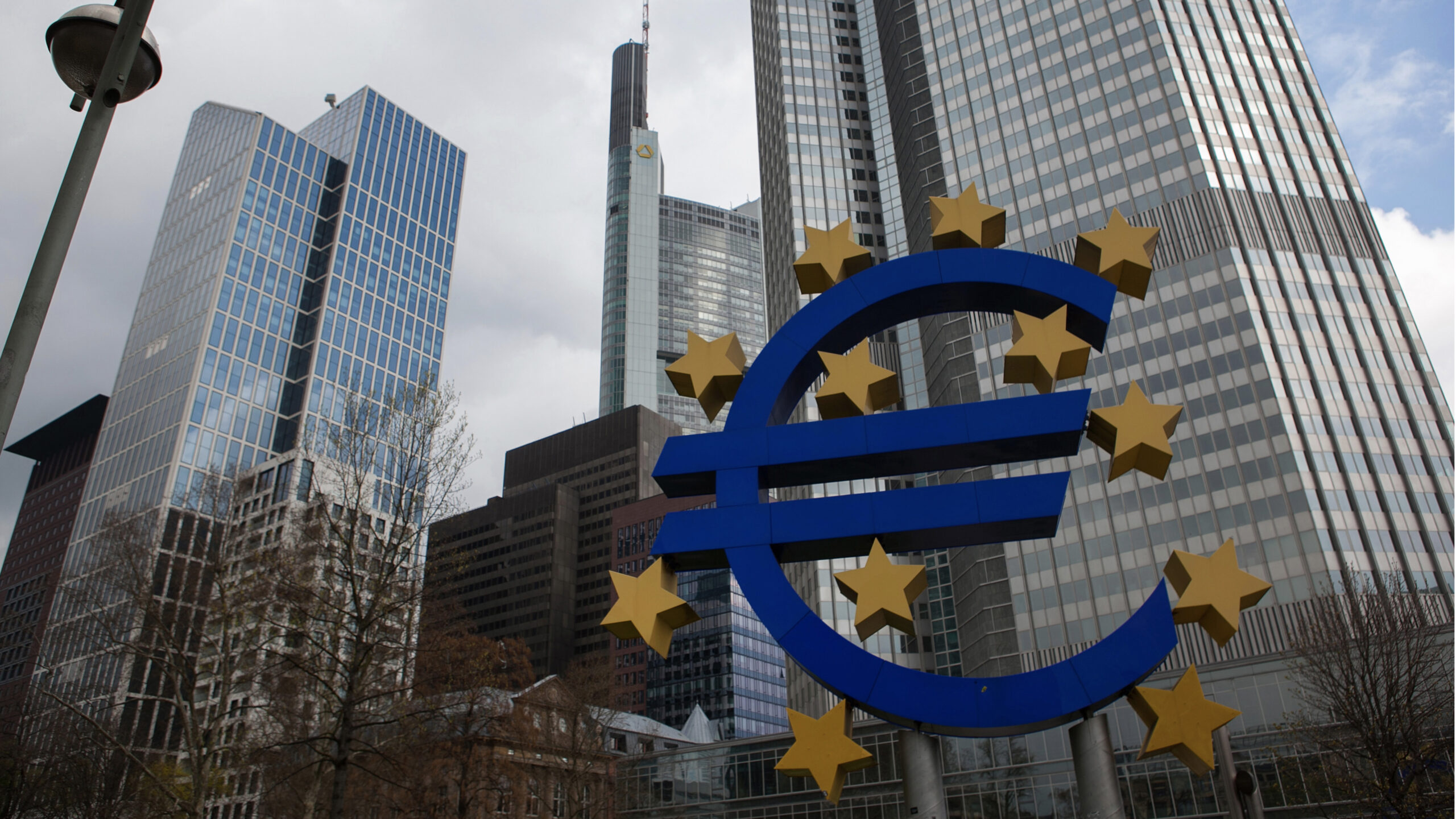
ECB urged to introduce ‘green’ and ‘brown’ interest rates after Macron appeal

Non-profit Reclaim Finance is among those echoing calls from French President Emmanuel Macron for variable borrowing rates that encourage green investment
Sustainable finance experts have backed calls by French President Emmanuel Macron for the European Central Bank to introduce “green” and “brown” interest rates as a way of incentivising green financing.
In an article published in December in the French newspaper Le Monde, Macron called for an acceleration in the green transition and suggested that green and brown interest rates could play a role in financing climate action.
High interest rates represent a threat to green investment through increased financing costs. Raised borrowing costs were cited as one reason why a UK offshore wind auction in 2023 failed to attract any bids, and in March 2023, trade association Wind Europe said that the cost for producing a wind turbine in Europe had increased by up to 40 per cent over the previous two years.
“We need to reduce the relative cost of capital in favour of green and away from polluting assets that result in carbon lock-in and stranded assets,” Oxford Sustainable Finance Group director Ben Caldecott tells Sustainable Views. “Among other things, environmental-related risks should be integrated into risk-based capital requirements and public financial institutions should aim to make all their financing facilities sustainability-linked.”
No need to change ECB mandate
The only way to create such a regime, without significant public investment, would be if the ECB opted to introduce different interest rates, argues Paris-based non-profit Reclaim Finance. With banks continuing to invest in fossil fuels and failing to provide sufficient financing for renewable energies, Reclaim Finance says that a differentiated rate by the ECB “would help to break the dynamics that endanger the achievement of French and European climate objectives”. The ECB declined to comment.
The idea has precedent, with China and Japan’s central banks already having introduced green rates in recent years. Reclaim Finance suggests the ECB could set a lower rate for financing green activities, beginning with sustainable energy such as solar, wind, ocean power and geothermal energy.
Lower interest rates could be introduced via the ECB’s targeted, longer-term refinancing operations, which provide a reduced interest rate to banks based on their support for non-financial institutions and households. Reclaim Finance said this change could be carried out within the central bank’s existing mandate.
Problems surrounding the EU’s green taxonomy could, for now, hinder a system of favourable rates for green investment, Lydia Preig, head of economics at think-tank the New Economics Foundation, tells Sustainable Views. The EU taxonomy has been dogged by disputes and environmental groups have filed legal challenges against the European Commission over the inclusion of nuclear energy, fossil gas and other fuels and technologies in the taxonomy.
“Central banks should be thinking about running quite a simple scheme to start with that doesn’t rely on having a perfectly working green taxonomy,” Preig says. “You could look at lower financing rates for banks that are able to demonstrate that they’re providing green loans to households to retrofit their homes, for example.
“If you were doing a really broad green lending scheme you would need a very well-working, well-operationalised green taxonomy with no kinks and problems, and that’s obviously not the position we’re in at the moment,” she says.
Changes to collateral requirements
Reclaim Finance has separately proposed environmental reforms to the Eurosystem collateral framework, which imposes the eligibility criteria and risk controls for eurozone banks’ collaterals. In 2022, the ECB said it would review this framework to incorporate climate change.
By the end 2024, the central bank is expected to put a cap on the share of assets with a high carbon footprint that can be used by banks as collateral. Reclaim Finance has called for the ECB to exclude assets linked to environmentally detrimental activities from its list of eligible assets, beginning with new fossil fuel projects.
The non-profit has also urged the ECB to change the “haircut” — a discount it applies to the value of eligible assets depending on how risky they are — to favour assets issued by companies involved in the green transition.
The ECB reviewed the framework in 2022 and said that it “did not find empirical evidence that necessitates amendments to the haircut schedule based on climate change considerations, as the updated haircut schedule is already sufficiently protective against climate-related financial risks”.
Preig is urging the ECB to reconsider its position. “It makes sense to me that if they’re incorporating these considerations into their broader collateral framework, that they should also be considering it in the haircut sense,” she says.
Similar Articles

Investors urge HSBC to set green finance targets at AGM

Finance professionals have ‘increasing’ interest in sustainable finance education


